Hey, you!
Yeah, you. I'm talking to you. I mean, who else would I be talking to?
…Oh, wait, wait…please don't stop reading yet! I'm sorry if I came off as rude. I only did it to make a point, because that's what this article is about.
The Japanese second-person pronoun あなた — that's "you" to you and me — is like the elephant in the room. It's all over plenty of popular beginners' textbooks, and yet you're unlikely to run across it as much in real life. Worse, there's a growing consensus that you should never use it, because it's always rude.
Where do all these conflicting pieces of information come from? What is the truth about あなた? Is it polite or rude? A good fallback, or best avoided? If you've found yourself pondering these questions, you're in the right place!
Now I'll give you the short version of my answer. あなた is neither polite nor rude. But, it could be either. あなた is, most of the time, neutral. I like to think of it as a blank canvas. When colors are added to the canvas, it expresses different nuances.
あなた is neither polite nor rude. But, it could be either. あなた is, most of the time, neutral.
I've seen many "warnings" towards learners that they should never use あなた. I understand the risk, but "never"? Really? That's a bit of overstatement. I'm writing this article in the hope that one day you'll be able to use it. Perhaps, someday, you might find yourself in need of using a second-person pronoun to ask questions to anonymous survey takers. Or maybe there'll be an occasion when you want to express your rebelliousness while also maintaining some professionalism. In this article, you'll find out how あなた can be a viable option in these situations.
Learning a language is not about memorizing a list of dos and don'ts, especially if you're aiming for true fluency. It's more about understanding nuances and manipulating the language to express yourself however you want. So keeping that in mind, are you ready to learn the truth about あなた?
- The History of あなた
- What Does あなた Sound Like These Days?
- When あなた is Neutral
- When あなた Is NOT Neutral
- Hope あなた Enjoyed This Article!
Prerequisites: This article assumes you already know hiragana and katakana. If you need to brush up, have a look at our Ultimate Hiragana Guide and Ultimate Katakana Guide. If you're not familiar with the concept of Japanese second-person pronouns and ways of addressing and referring to others in Japanese, consider checking out our second-person pronouns page to get the most out of this article. You can go read it now, and then come back. Don't worry, we'll still be here waiting for you!
Speaking of あなた… we also recorded a podcast episode about it. We highly recommend you check it out after reading this article for an even deeper understanding of the word.
The History of あなた
Before getting into all the nuances, let me walk you through a brief history of あなた. It explains a lot about why some say あなた is rude and some say it's polite.
The word was initially used to refer to a thing or a place that was far away. Because Japanese culture tends to avoid directness, people started to use あなた to refer to a person in an indirect and polite way. It eventually became a way to address someone, and acquired the meaning "you." At first, it was a polite word used only for people of higher social status. Later, as part of the drive to standardize the Japanese language, which happened during the Meiji and Showa periods, language guidelines encouraged citizens to use あなた as the standard second-person pronoun.
Over time, the initial honorific connotations of あなた changed. Nowadays, it can even come off as impolite. In fact, this happened not only to あなた, but also to all the other Japanese second-person pronouns. 貴様 is a good example of this phenomenon. It's a second-person pronoun that's derogatory and clearly very rude these days. However, the kanji components 貴 (noble) and 様 (honorific title/name ender) show that it was once a very polite term.
Over time, the initial honorific connotations of あなた changed. Nowadays, it can even come off as impolite.
This common tendency of words losing politeness over time is inevitable due to the nature of second-person pronouns in Japanese. Once a word starts being used as a second-person pronoun, it gradually acquires a feeling of "directness," which is considered impolite in Japanese. あなた is not yet as unequivocally offensive as some of the other second-person pronouns, but it's definitely following the same path.
What Does あなた Sound Like These Days?
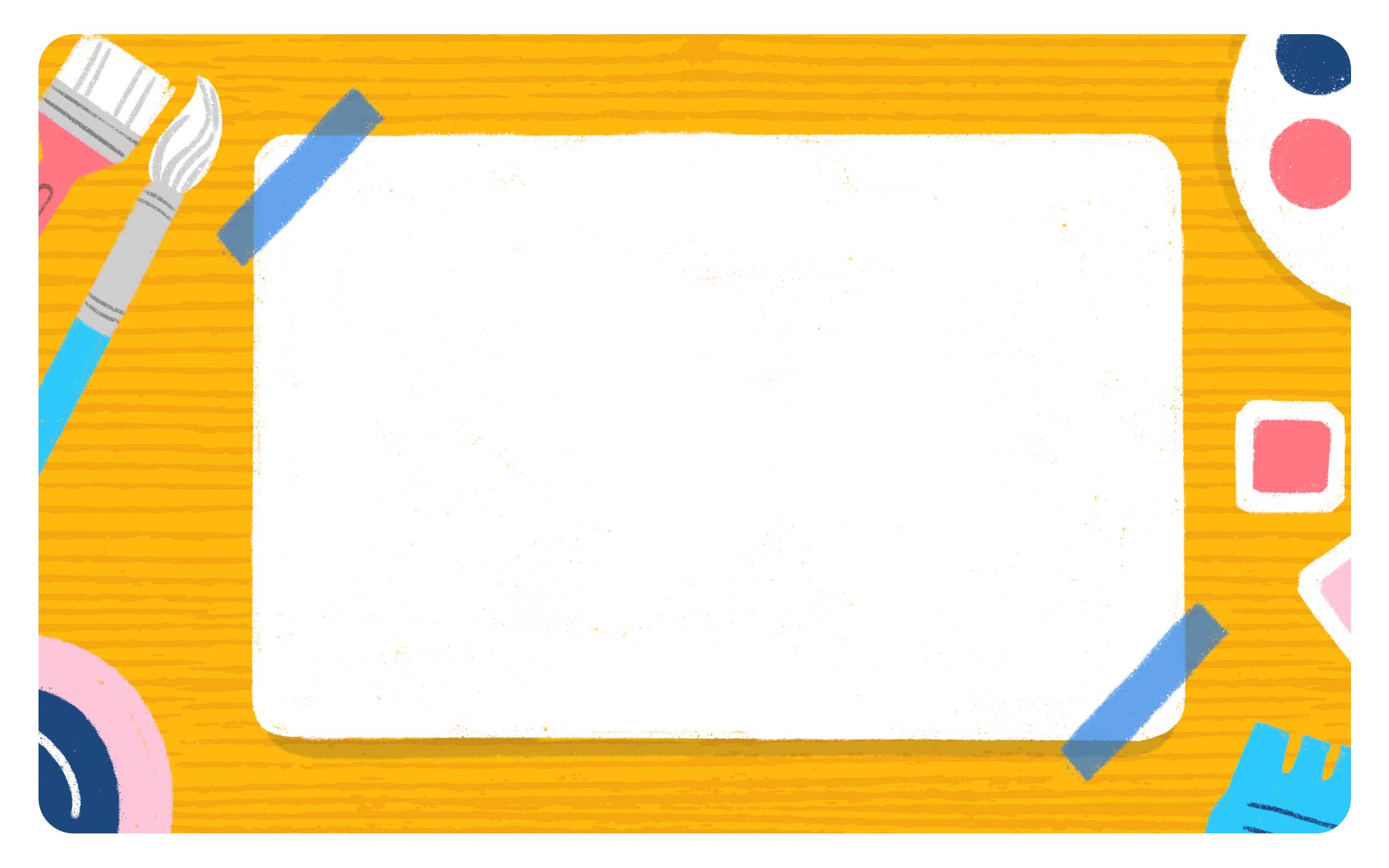
Since the connotation that あなた carries has shifted so much over time, what does that mean for its usage today? Does it still carry some of the polite underpinnings of its past, or is it overly direct and rude? As is often the case with language, we can't make a blanket statement that covers all cases — everything comes down to context.
So, rather than fretting about whether あなた is polite or rude, it's best to think of it as a blank canvas. On its own, it's the most plain and neutral second-person pronoun. Then, depending on how it's used, it takes on different connotations. According to the relationship between the speaker and listener, the attitude of the speaker, and whether it's used in written or verbal communication, あなた can sound condescending, respectful, or even affectionate.
This is pretty unique amongst second-person pronouns. Other options like 君 and お前 almost always suggest that the speaker believes they hold a higher social status than the addressee, or at least, they're equal. They often give the impression that the speaker is looking down on the addressee as well. あなた could create a similar effect, but that's not always the case. To really see how あなた sounds today, we need to look at it in a variety of different contexts.
When あなた is Neutral
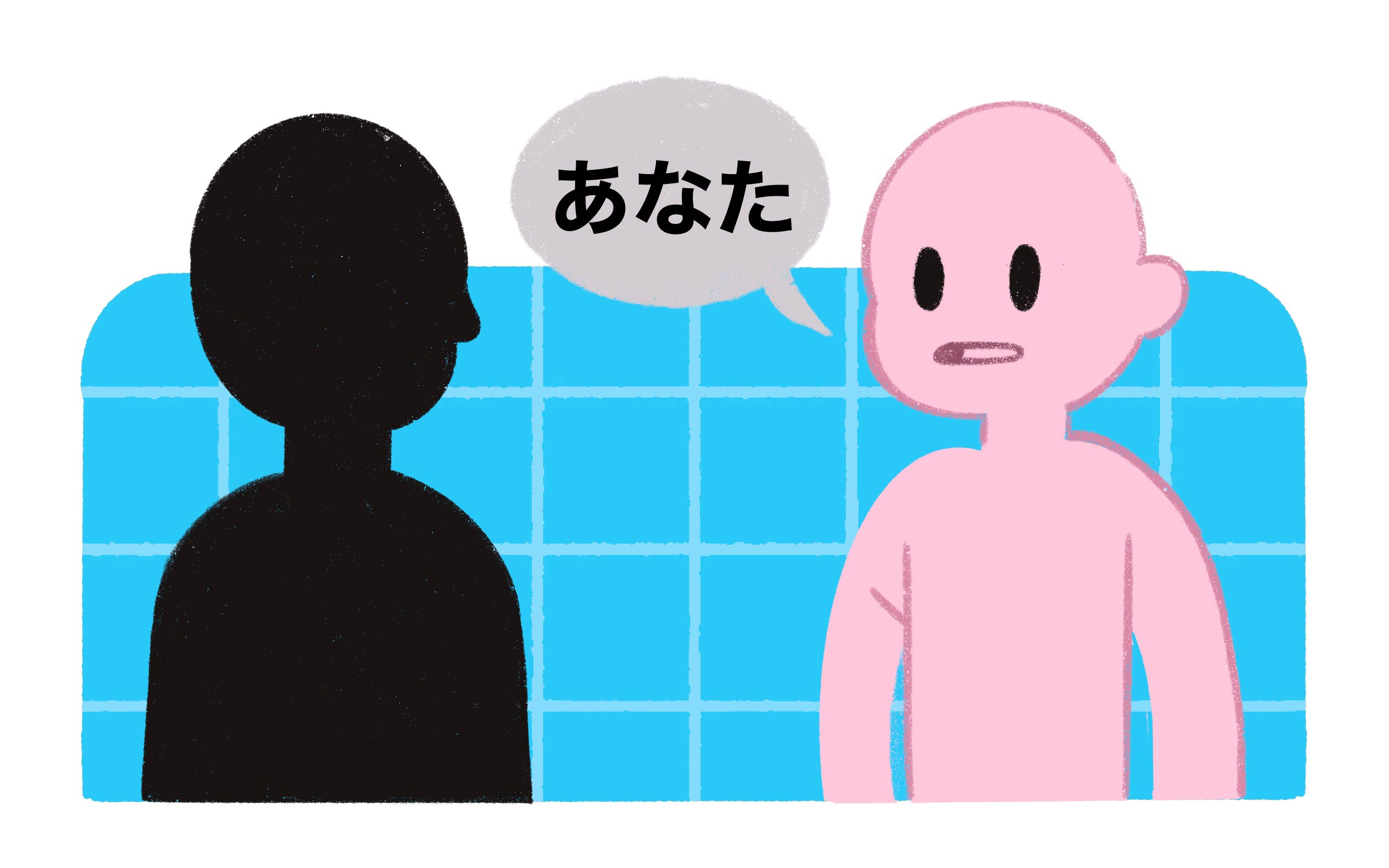
As a colorless, plain pronoun, あなた is often considered to be the representative of Japanese second-person pronouns. For example, Japanese people learn the English word "you" as the equivalent of あなた.
We usually manage to communicate or tell a story without using a second-person pronoun in Japanese. Curious how? We simply leave it out or call the person by their name, family role like "mom," or social role like "doctor." (For more details about how to address and refer to others without using personal pronouns, check out our article: What Should I Call You?)
Although this works most of the time, there are times when you can't avoid using a second-person pronoun. In that case, あなた comes in handy because of its lack of undertone and bias. In the majority of situations where あなた is used these days, the meaning is neutral. Now, let's take a look at some actual examples.
あなた for an Unspecified Audience
You can easily spot あなた in various places like the media, ads, questionnaires, exams, and textbooks. It's a word that refers to a general audience.
So when you see あなた used in your textbook, don't think they're trying to be rude to you! This is an actual example from the Japanese textbook GENKI I, where they use it as a part of an exercise:
- あなたの町に、日本のレストランがありますか。
- Is there a Japanese restaurant in your city?
If you've simply been told that あなた is rude, you might find this example strange. In this case though, that rule doesn't apply. Rather, the intention is to exclude extraneous, unnecessary nuances by using the plainest, and somewhat formal, second-person pronoun, あなた.
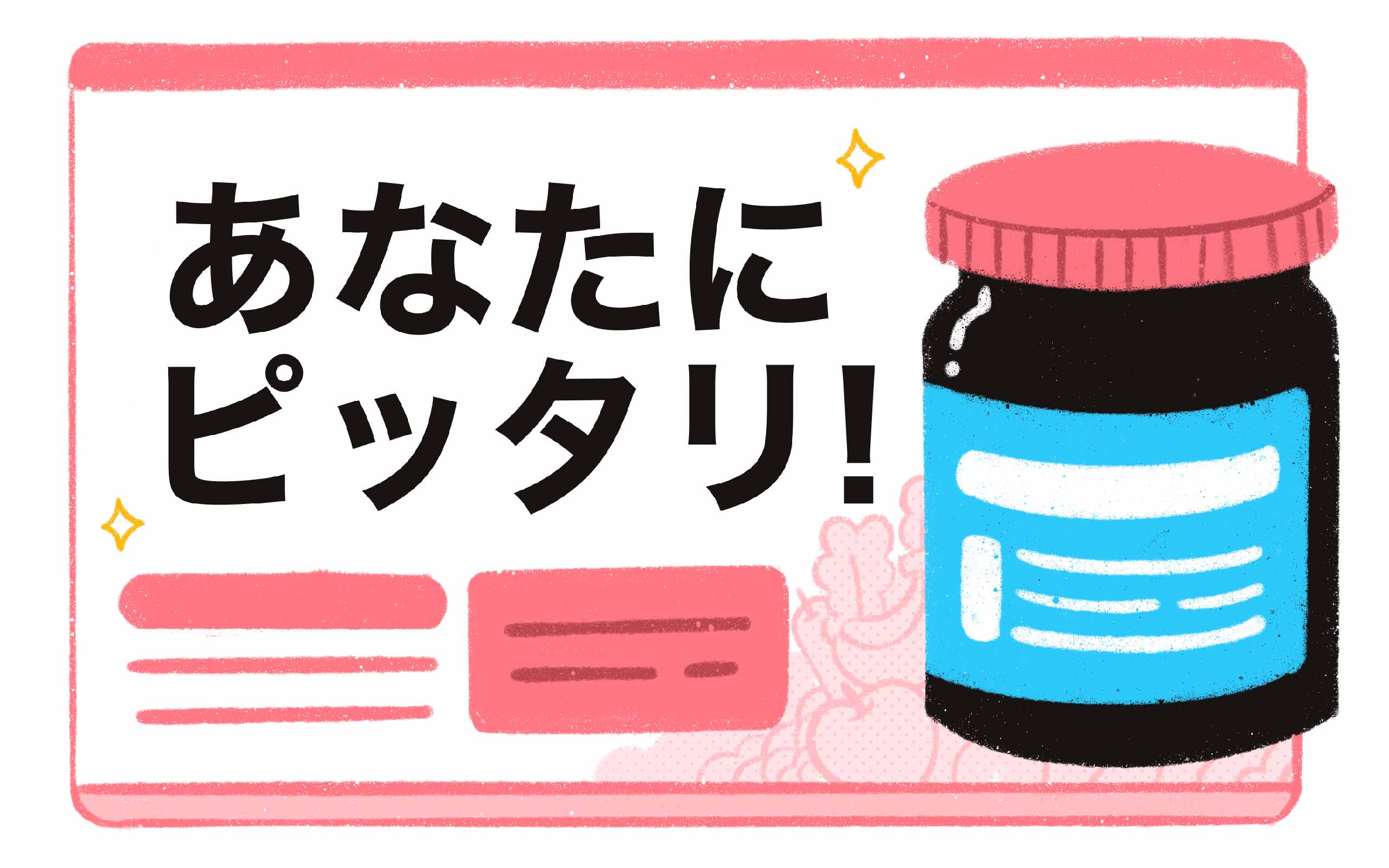
Similarly, many advertisements attempt to reach out to their audience by speaking directly to the consumer. The tone makes the ad sound somewhat colloquial and feels as though they are talking to you. This copywriting tactic is often used in Japanese marketing materials as well, and あなた is the most common choice.
- あなたにピッタリのダイエットサプリ!
- The perfect diet supplement for you!
あなた also works well in surveys and questionnaires, which are often designed to ask questions about the respondents themselves.
- あなたの職業を教えてください。
- Tell us what your job is.
あなた for an Online Anonymous "You"
Many people prefer to stay anonymous online these days. Considering all the privacy concerns out there, this is understandable. However, it makes it tricky to decide what to call someone else without knowing their name or any other information about them.
For example, on online Q&A forums like Yahoo!知恵袋 or 教えて! goo (the Japanese versions of Yahoo! Answers or Quora), where anonymous people consult others, it's interesting to see how people address the inquirer.
Along with specific terms found on online forums such as 質問者様 (inquirer) or トピ主/ スレ主 (thread poster), あなた is a common choice as well. For example, I ran into a forum response saying:
- あなたの意見は正しいと思う。
- I think you're right.
Compared to casual platforms like 5ch (formally known as 2ch), the overall tone of the language used on these Q&A forums feels more formal, unless of course someone's trolling. So, あなた often works well to approach an anonymous person without sounding impolite.
あなた for Telling a Story
あなた can also be used to recount a conversation that happened in the past.
- 「まだあなたの番じゃないよ」って言われた。
- I was told, "It's not your turn yet."
In the case of quoting someone like this, it's very likely that whomever is being quoted did not actually use the word あなた. In direct quotes like this, あなた doesn't necessarily sound unnatural or rude. You're just objectively telling a story as if you are a character in the dialogue. And in this way, it can be used to conveniently describe the situation and explain who said what to whom. This is useful for imaginary or hypothetical conversations as well. Let's say you're talking about your favorite anime character with some friends who share your passion. You may say something like:
- あなた何でそんなに可愛いのって感じじゃない?
- It's like "how are you this cute?" you know?
あなた for Objectivity
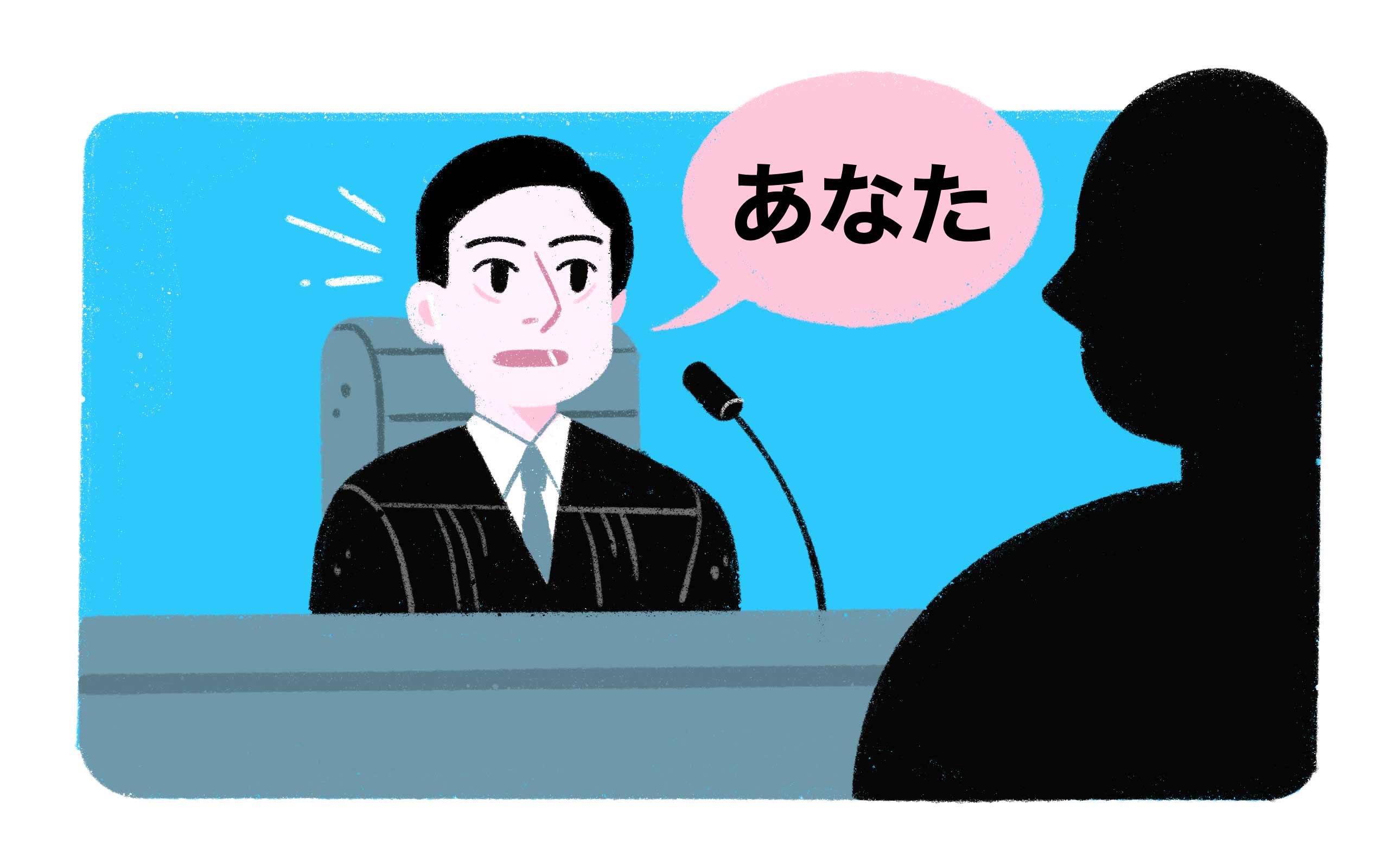
あなた can be used in face-to-face interactions as well, without sounding rude. This is especially prevalent in situations which require objectivity, like questioning in court. Prosecutors or lawyers will use あなた to refer to the defendant or testifier.
- あなたは事件の日、何をしていましたか?
- On the day of the incident, what were you doing?
- あなたは取調官に正直に話しましたね?
- You told the truth to investigators, correct?
Instead of omitting pronouns, using あなた keeps matters fair and professional. It creates a clear sense of who is being addressed or questioned, without making it feel unnecessarily rude or overly friendly.
あなた for Creative Writing — Lyrics, Poems, and Novels
あなた is a somewhat literary-sounding word. This is especially true in creative writing, where あなた gets used more frequently than is commonly done in daily conversation. It's not weird at all to see characters in novels or manga use あなた. For example, this line is from a story called Moonlight Shadow by Banana Yoshimoto1:
- 「あたしは、うらら。あなたは?」
- "I'm Urara. And you are?"
It's not weird at all to see characters in novels or manga use あなた.
Using あなた in literary works can be a reflection of how the word is naturally used in real-life situations. The author may include あなた for the purpose of character development — how the author wants a character to sound, or how they want to express the character's personality. That said, you're still more likely to spot あなた in creative writing than in the wild. This is because using あなた is a convenient way of telling a story without visual cues or shared context. Even if readers are aware of the fact あなた doesn't get used that much in real-life conversation, it usually doesn't get in their way of enjoying the story.
You will also often hear あなた used in song lyrics and poems. It depends on the context that it's used in, but it's typically used to refer to someone special. あなた can be used flexibly for any demographic, so many people find it relatable as well. Here's an example from the song 言葉にできない by a Japanese band called Off Course.
- あなたに会えて、本当に良かった。
- I'm really glad that I got to meet you.
When あなた Is NOT Neutral
So far, we've discussed how あなた is used neutrally. Now, let's talk about how it can take on different colors and nuances.
When someone uses あなた to address or refer to you in person, it tends to express a particular nuance. That's because it's a choice that's made over the other more common options — omitting the second-person pronoun or calling someone by their name, family role, or social role. Thus, it could be taken as either rude or polite.
あなた for Husbands
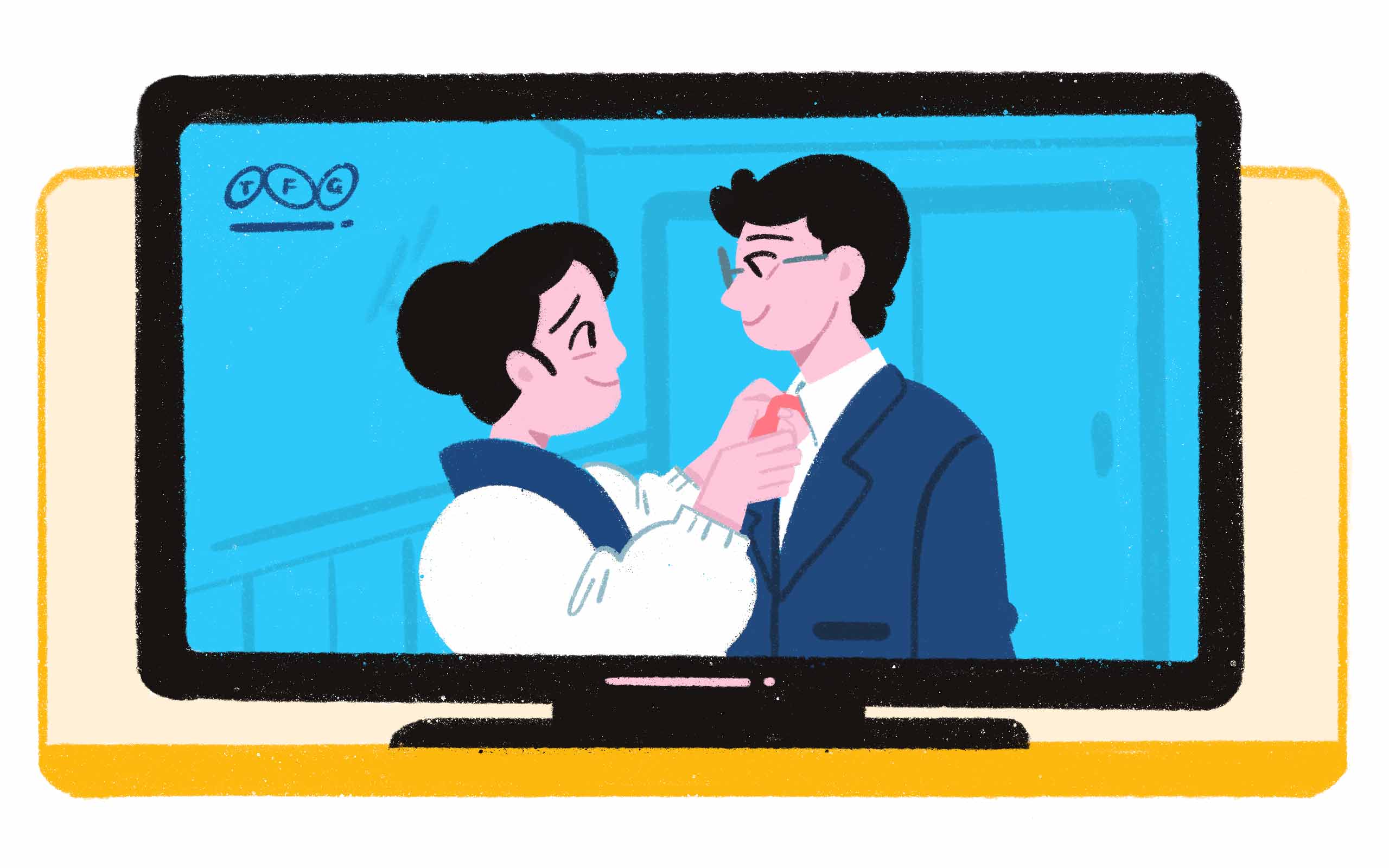
あなた may have a more intimate vibe to it. This is especially the case when it's used in romantic relationships or flirty situations, because あなた is not commonly used in real-life conversation.
Some of you might have learned that あなた is only polite when women use it to refer to their husbands. In fact, these days, it's considered a stereotypical phrase of old-timey housewives or clingy female lovers. The nuance tends to be affectionate and intimate while respectful.
- あなた、今日は何時に帰ってくるの?
- Honey, what time are you coming home today?
You'll be able to spot あなた used like this in shows, such as with stereotypical "perfect wife" figures in the olden days, or else in cheesy interactions of lovey-dovey couples. However, the usage is actually quite rare in today's real-life speech. Many studies show there are few people who actually call their husbands あなた nowadays. If used in daily conversation today, it's likely by someone from an older generation.
We should also point out that husbands can technically use あなた for their wives too. If a husband uses あなた to address his wife, though, the nuance could be rather condescending, as opposed to affectionate.
あなた for Putting on a Calm Front
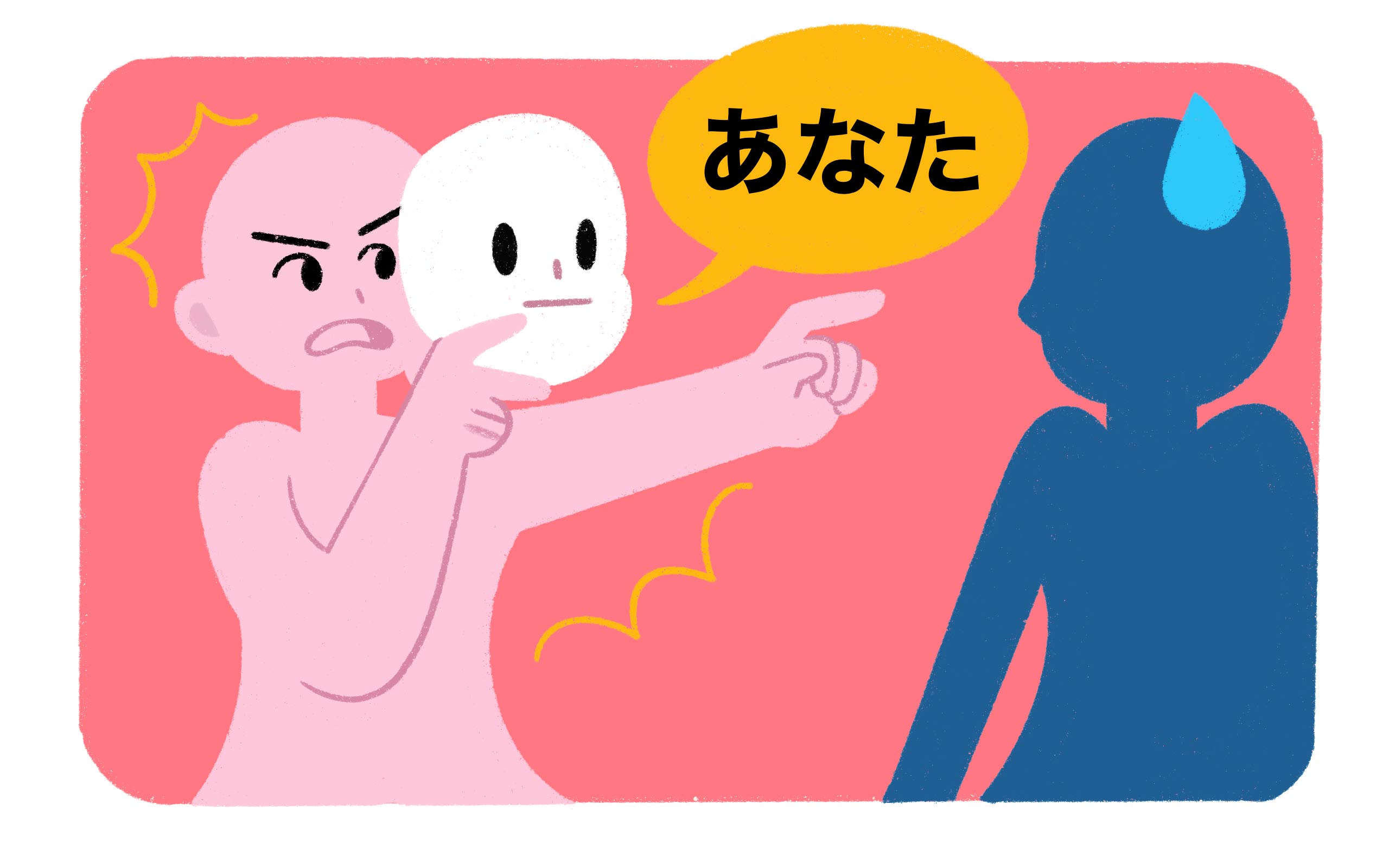
There is some truth to how people say あなた is rude, especially in face-to-face conversation. Instead of calling a person by their name or their family/social role ("mom" or "doctor," for example), which feels more personal and friendly, using あなた can come off as patronizing or standoffish.
Since あなた is still a somewhat formal-sounding word, it is not as obviously rude as derogatory pronouns like お前, or the very casual version of あなた — あんた. You can use あなた as a formality to sound rational and professional when you communicate negative emotions, such as anger, hatred, hostility, or a sense of rivalry. Basically, you're pretending to be polite, and that's just to present yourself as calm and collected. And this often results in sounding condescending. It's such a roundabout, passive-aggressive style, but it could be an effective way to express these negative emotions.
To use an example, let's say your mom is upset because you forgot to lock the door. She might say:
- 何であなたはドアの鍵を開けっ放しにしたのって聞いてるんでしょ。
- I'm asking why you left the door unlocked.
You can use あなた as a formality to sound rational and professional when you communicate negative emotions, such as anger, hatred, hostility, or a sense of rivalry.
This should scare you a little bit because you know something is up from how your mom just called you あなた. She usually calls you by your name. Her selectively using あなた makes the situation feel a lot more serious. The switch from calling you by your name to あなた sets the tone. It's sort of like when your parents suddenly call you by your full name (including even your middle name) in English. You sense an unusual vibe.
Some say you should never use あなた or any other second-person pronoun to refer to someone who's older or of a higher social status. This is, however, not always the case. When あなた acts as a device to put on a calm front, it can actually be used to address those of higher social statuses, in order to present your rebelliousness.
Ultimately, you can even use it towards the prime minister of the country! 😳 For example, imagine you're a congressperson from the opposition party and you're wanting to criticize the prime minister, who you think should be held accountable for something. At a political debate, you might heat up and say:
- あなたの責任じゃないですか?
- Isn't that your responsibility?
You usually use 総理 (the short form of "prime minister") to refer to them, but you intentionally switch the tone by using あなた. You probably shouldn't call them お前 or あんた because they go against social etiquette in too obvious a way. If you did, people would think you'd gone out of your mind or were getting too emotional. It would make you look unprofessional, and you may end up getting a bad rap! あなた, on the other hand, is the perfect way to combine decorum with condescension.
Hope あなた Enjoyed This Article!
We covered some common examples in which あなた is actually used today, but there are probably many more situations out there where you may find it in the wild. Just remember, あなた is like a blank canvas. It could be used as a neutral pronoun in a practical matter. Otherwise, the context around how and when it's used can add different nuances. After all, it's not all about it being polite or rude.
After all, it's not all about it being polite or rude.
I do understand why people encourage Japanese learners to play it safe by avoiding the use of あなた. It could be risky to use, especially when said to someone's face. But conversation is not the only form of communication in a language. Although conversation tends to get the spotlight when it comes to learning a new language, there are still numerous other opportunities to see and use あなた, in both spoken and written Japanese. I hope this article helped you understand what あなた really is, including the colorful and colorless nuances that it brings.
…But I get it! Now that you've learned about あなた and its rather niche uses in regular conversation, you might be itching to know how you can refer to others instead of using あなた. If that's the case, please check out our article: What Should I Call You? In it, we discuss more common ways of addressing and referring to people in day-to-day communication. For now, see you, あなた! 👋
-
Yoshimoto, B. (1988). Kicchin. Tokyo: Fukutake Shoten. ↩
